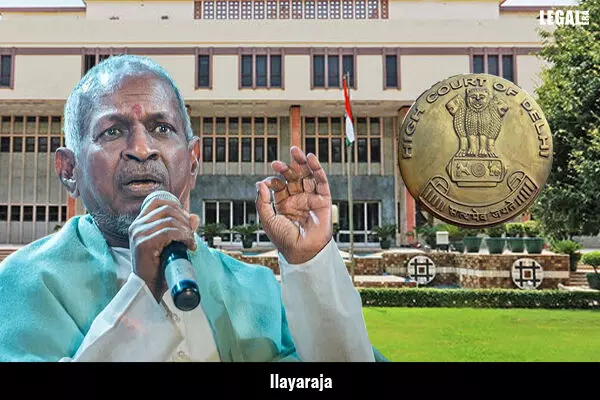- Home
- News
- Articles+
- Aerospace
- Artificial Intelligence
- Agriculture
- Alternate Dispute Resolution
- Arbitration & Mediation
- Banking and Finance
- Bankruptcy
- Book Review
- Bribery & Corruption
- Commercial Litigation
- Competition Law
- Conference Reports
- Consumer Products
- Contract
- Corporate Governance
- Corporate Law
- Covid-19
- Cryptocurrency
- Cybersecurity
- Data Protection
- Defence
- Digital Economy
- E-commerce
- Employment Law
- Energy and Natural Resources
- Entertainment and Sports Law
- Environmental Law
- Environmental, Social, and Governance
- Foreign Direct Investment
- Food and Beverage
- Gaming
- Health Care
- IBC Diaries
- In Focus
- Inclusion & Diversity
- Insurance Law
- Intellectual Property
- International Law
- IP & Tech Era
- Know the Law
- Labour Laws
- Law & Policy and Regulation
- Litigation
- Litigation Funding
- Manufacturing
- Mergers & Acquisitions
- NFTs
- Privacy
- Private Equity
- Project Finance
- Real Estate
- Risk and Compliance
- Student Corner
- Take On Board
- Tax
- Technology Media and Telecom
- Tributes
- Viewpoint
- Zoom In
- Law Firms
- In-House
- Rankings
- E-Magazine
- Legal Era TV
- Events
- Middle East
- Africa
- News
- Articles
- Aerospace
- Artificial Intelligence
- Agriculture
- Alternate Dispute Resolution
- Arbitration & Mediation
- Banking and Finance
- Bankruptcy
- Book Review
- Bribery & Corruption
- Commercial Litigation
- Competition Law
- Conference Reports
- Consumer Products
- Contract
- Corporate Governance
- Corporate Law
- Covid-19
- Cryptocurrency
- Cybersecurity
- Data Protection
- Defence
- Digital Economy
- E-commerce
- Employment Law
- Energy and Natural Resources
- Entertainment and Sports Law
- Environmental Law
- Environmental, Social, and Governance
- Foreign Direct Investment
- Food and Beverage
- Gaming
- Health Care
- IBC Diaries
- In Focus
- Inclusion & Diversity
- Insurance Law
- Intellectual Property
- International Law
- IP & Tech Era
- Know the Law
- Labour Laws
- Law & Policy and Regulation
- Litigation
- Litigation Funding
- Manufacturing
- Mergers & Acquisitions
- NFTs
- Privacy
- Private Equity
- Project Finance
- Real Estate
- Risk and Compliance
- Student Corner
- Take On Board
- Tax
- Technology Media and Telecom
- Tributes
- Viewpoint
- Zoom In
- Law Firms
- In-House
- Rankings
- E-Magazine
- Legal Era TV
- Events
- Middle East
- Africa
Delhi High Court Rules In Favor Of Saregama India In Copyright Dispute Over ‘En Iniya Pon Nilave’

Delhi High Court Rules in Favor of Saregama India in Copyright Dispute Over ‘En Iniya Pon Nilave’
New Delhi: The Delhi High Court has ruled that Saregama India Limited (SIL) holds the copyright for the iconic Tamil song En Iniya Pon Nilave, preventing music composer Ilayaraja from granting its rights to any third party.
The Court barred Vels Films International from releasing a recreated version of the song, which had been composed by Ilayaraja’s son, Yuvan Shankar Raja, and sung by Vijay Yesudas, the son of legendary singer Yesudas, who originally performed it in 1980.
Saregama approached the Court after discovering that Vels Films had recreated the song for its upcoming Tamil film Aghathiyaa without obtaining proper permission. The company became aware of the copyright infringement when a teaser of the film featuring the song was released on social media. Despite issuing a cease-and-desist notice, the defendants proceeded to publish the song on various streaming platforms, prompting legal action. Justice Mini Pushkarna ruled in favor of Saregama, stating that under an agreement dated February 25, 1980, SIL had legally acquired the sound recording and musical and literary works of the film Moodu Pani, which includes the song En Iniya Pon Nilave.
The Court held that Ilayaraja, as the composer, did not have copyright ownership over the song and, therefore, could not license it to Vels Films. Additionally, the Court clarified that Ilayaraja was not the lyricist and had no authority to grant permission for the use of the song’s lyrics.
Considering the financial investment made by Vels Films in recreating the song, the Court allowed the company to use it in Aghathiyaa—but only if it deposited a ₹30 lakh license fee as compensation to SIL. However, this was a temporary arrangement and would not affect the final outcome of the case. Ultimately, Vels Films chose to remove the song from the movie, as it could not pay the ₹30 lakh fee required by the Court. This decision reaffirmed Saregama’s legal ownership over the song and reinforced the importance of copyright compliance in the entertainment industry.



